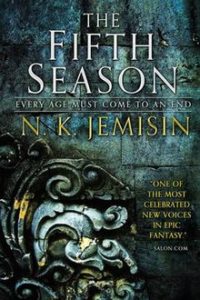Imagine a future where technology, culture, and the boundless possibilities of the universe come together to tell the stories of the African diaspora. In this blog, we’ll embark on a journey into the world of Contemporary Black Sci-Fi Novels, a genre that merges the futuristic with the cultural, creating a literary landscape known as Afrofuturism. Join us as we explore the themes, authors, and impact of this captivating genre.
Afrofuturism: A Glimpse into the Future
Afrofuturism is a genre of literature that envisions a future where African and African-American culture, history, and identity play central roles. It melds elements of science fiction, fantasy, and speculative fiction to create unique narratives that transcend time and space.
Contemporary Black Sci-Fi Novels: A Growing Trend
Contemporary Black Sci-Fi Novels, also known as Afrofuturistic literature, are gaining recognition and popularity within the literary world. These novels explore themes such as identity, race, social justice, and the impact of technology on Black communities.
Toni Morrison’s “Paradise”
Toni Morrison, a renowned author, delved into Afrofuturism with her novel “Paradise.” Set in the fictional town of Ruby, Oklahoma, the novel explores the intersection of race, identity, and supernatural elements. It challenges traditional narratives and showcases the power of storytelling in shaping our understanding of the world.
N.K. Jemisin’s “The Fifth Season”

N.K. Jemisin is a leading voice in Contemporary Black Sci-Fi Novels, and her work often delves into Afrofuturistic themes. “The Fifth Season” is the first book in her Broken Earth trilogy, offering a richly imagined world where the earth itself possesses extraordinary power. Jemisin’s storytelling challenges conventional notions of power, oppression, and resistance.
Octavia E. Butler’s “Parable of the Sower”
Octavia E. Butler is considered a pioneer of Afrofuturism and her novel “Parable of the Sower” is a compelling exploration of a near-future dystopian America. The story follows a young woman named Lauren Olamina as she navigates a world marked by environmental collapse and societal upset while developing a new belief system.
African Mythology in Afrofuturism
Many Contemporary Black Sci-Fi Novels draw inspiration from African mythology and folklore. These stories infuse ancient traditions and beliefs into futuristic settings, creating a captivating blend of the old and the new.
The Role of Music in Afrofuturism
Music often plays a central role in Afrofuturistic literature. Artists like Sun Ra, George Clinton, and Janelle Monáe have contributed to the cultural landscape of Afrofuturism, and their work has inspired novels that explore the transformative power of music in shaping the future.
The Impact of Afrofuturism on Representation
Afrofuturism provides a platform for diverse voices and perspectives within the Black community. It challenges traditional narratives and pushes for greater representation of Black characters, authors, and stories in the science fiction and fantasy genres.
The Intersection of Technology and Identity
Contemporary Black Sci-Fi Novels often explore the complex relationship between technology and identity. These narratives raise questions about how advances in science and technology can both empower and disempower marginalized communities.
Nisi Shawl’s “Everfair”
Nisi Shawl’s “Everfair” reimagines the history of the Congo during the colonial era by introducing elements of steampunk and alternate history. The novel challenges the oppressive forces of colonialism and offers a vision of resistance and transformation.
Creating a Vision for the Future
Afrofuturism encourages readers to envision a future where Black culture, history, and identity are central to the narrative. These novels challenge traditional notions of the future and inspire readers to explore new possibilities.
Afrofuturism in Film and Music
Afrofuturism extends beyond literature and has made a significant impact on film and music. Movies like “Black Panther” and the music of artists like Beyoncé incorporate Afrofuturistic themes, contributing to the genre’s cultural significance.
Conclusion
Contemporary Black Sci-Fi Novels offer readers a unique and thought-provoking literary experience. By exploring themes of identity, race, culture, and technology in futuristic settings, these novels challenge conventional narratives and expand our understanding of the world. Afrofuturism invites us to imagine a future where Black voices are at the forefront, celebrating the rich tapestry of the African diaspora. As the genre continues to grow, it encourages us to explore new horizons and envision a more inclusive and equitable future for all…(read more)